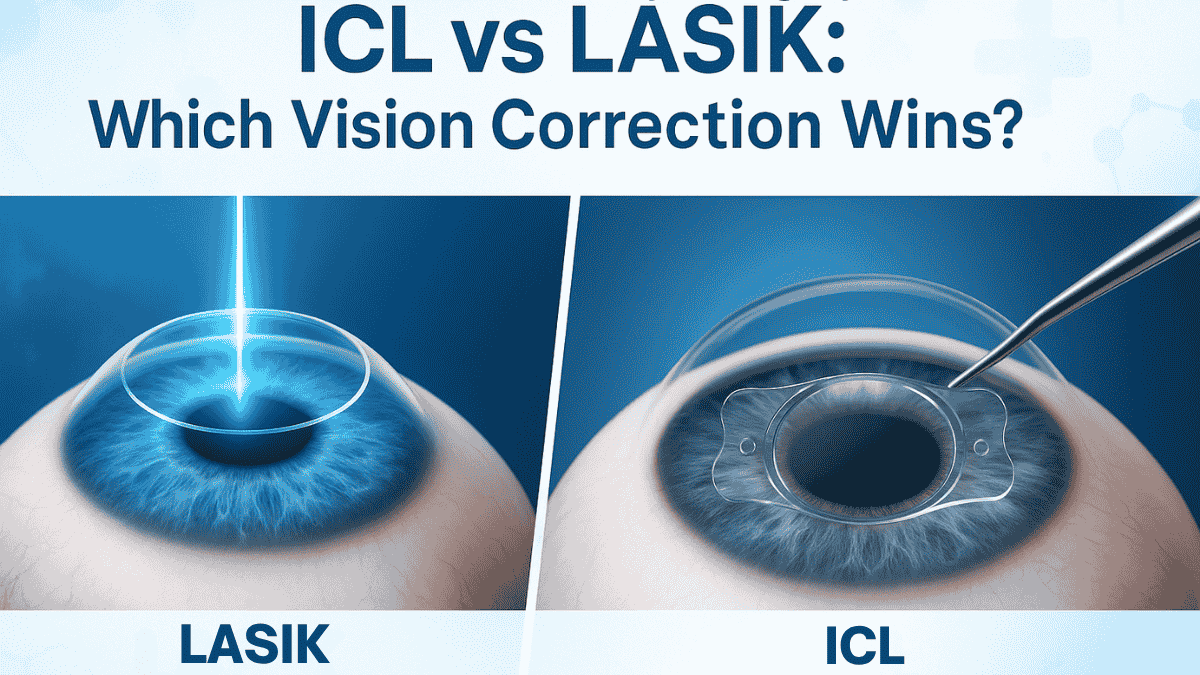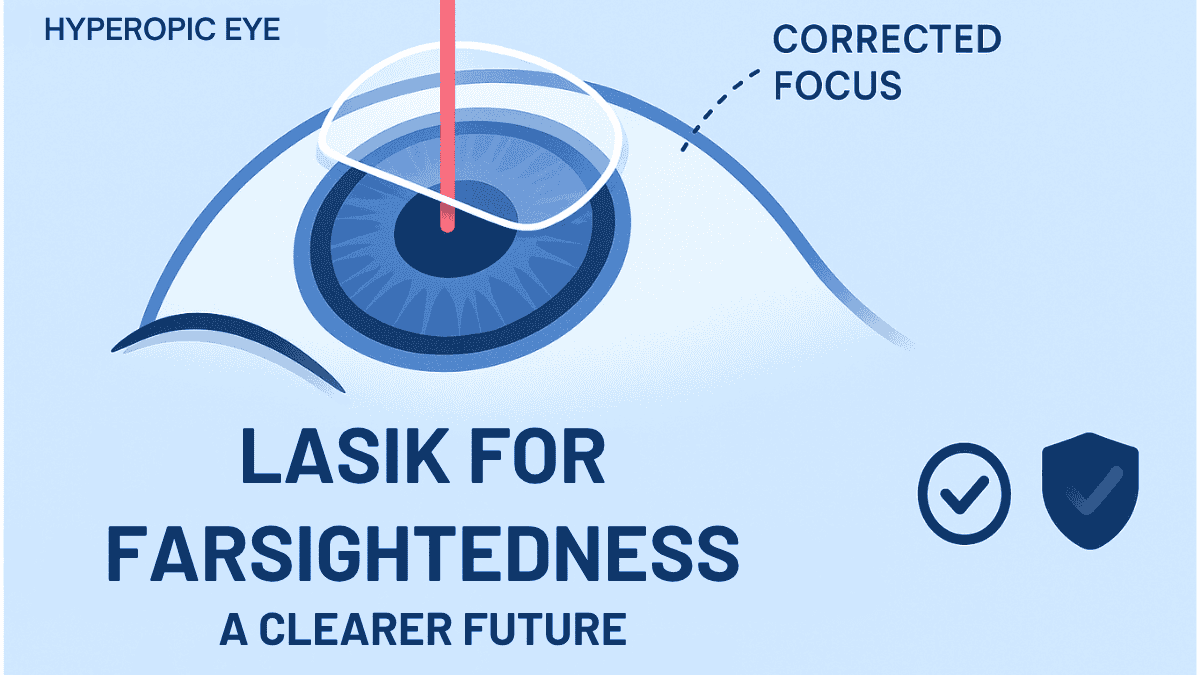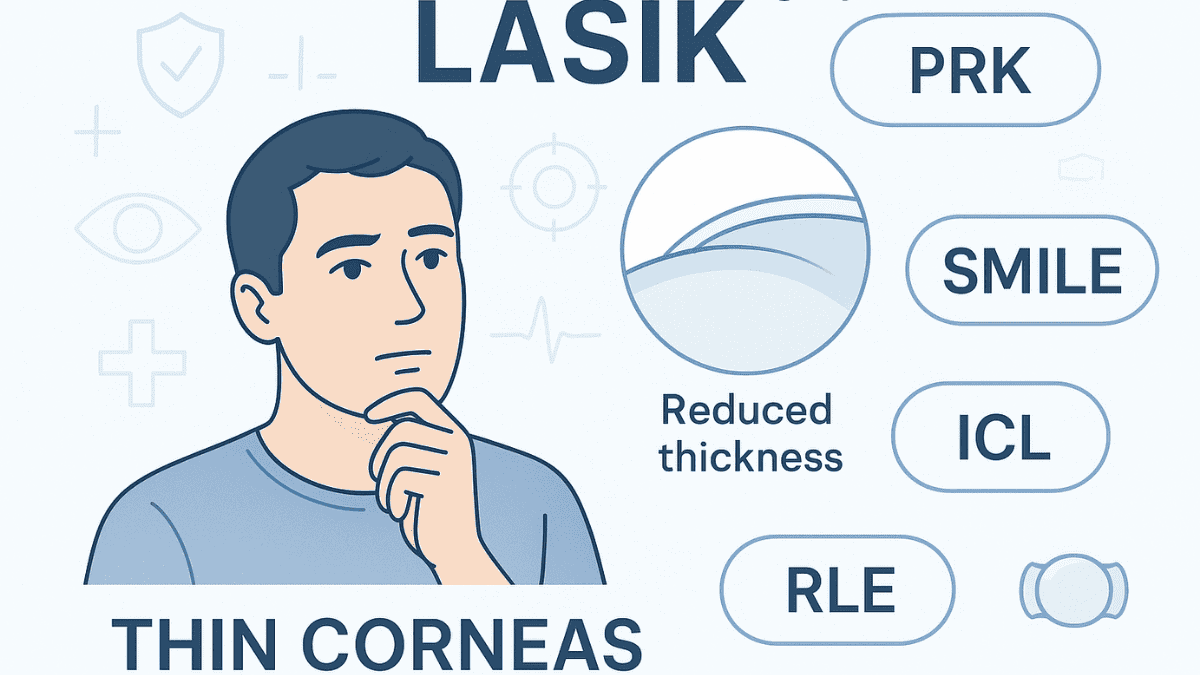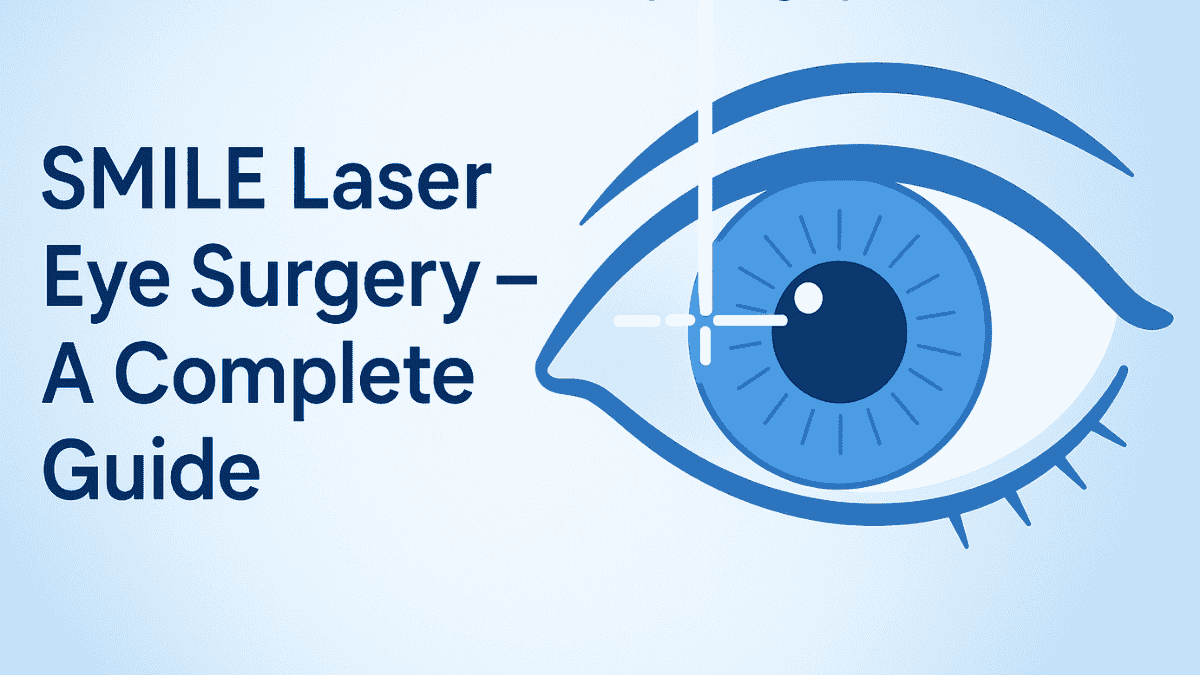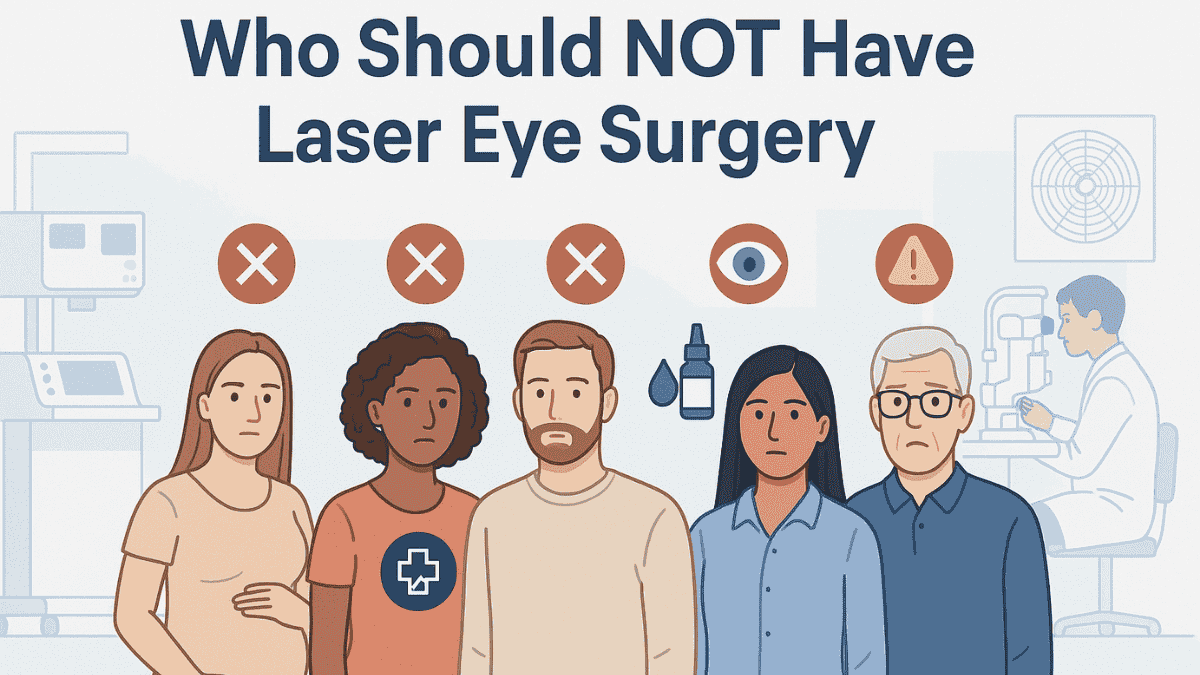
Laser eye surgery offers a path to clearer sight for many individuals tired of wearing glasses or contact lenses. However, this popular vision correction procedure is not suitable for everyone. Certain health factors, existing eye conditions, or even lifestyle aspects mean some people should not have laser eye surgery, making it important to understand if you are a good candidate before you undergo laser eye treatment.
Exploring the reasons why someone might be advised against this commonly performed laser surgery can help you make an informed decision about your vision correction. If you are considering options to improve focus and reduce dependency on corrective eyewear, understanding these limitations is the first step. An experienced eye specialist can provide guidance tailored to your specific situation.
Table of Contents
Who Should Not Have Laser Eye Surgery?
While laser eye surgery, such as lasik surgery or PRK surgery, can be a remarkable correction solution for vision problems, it is not universally appropriate. An ophthalmic surgeon will conduct a detailed assessment to determine your suitability. Knowing some common contraindications for refractive laser surgery can help you prepare for your consultation.
1. Pregnant or Nursing Women
Hormonal shifts during pregnancy and breastfeeding can significantly influence your body, including your eyes. These changes can cause fluctuations in your eye prescription and even affect tear production, potentially leading to dry eyes. Because the laser treatment reshapes the cornea based on your current refractive error, a stable prescription is vital for a successful outcome.
If you undergo laser treatment while your vision is temporarily altered by hormones, the correction might be inaccurate once your body returns to its non-pregnant state. Most eye surgeons advise waiting several months after childbirth and an additional few months after discontinuing nursing. This waiting period allows your hormone levels and vision problems to stabilize, ensuring the laser vision correction is based on your true, stable refractive error.
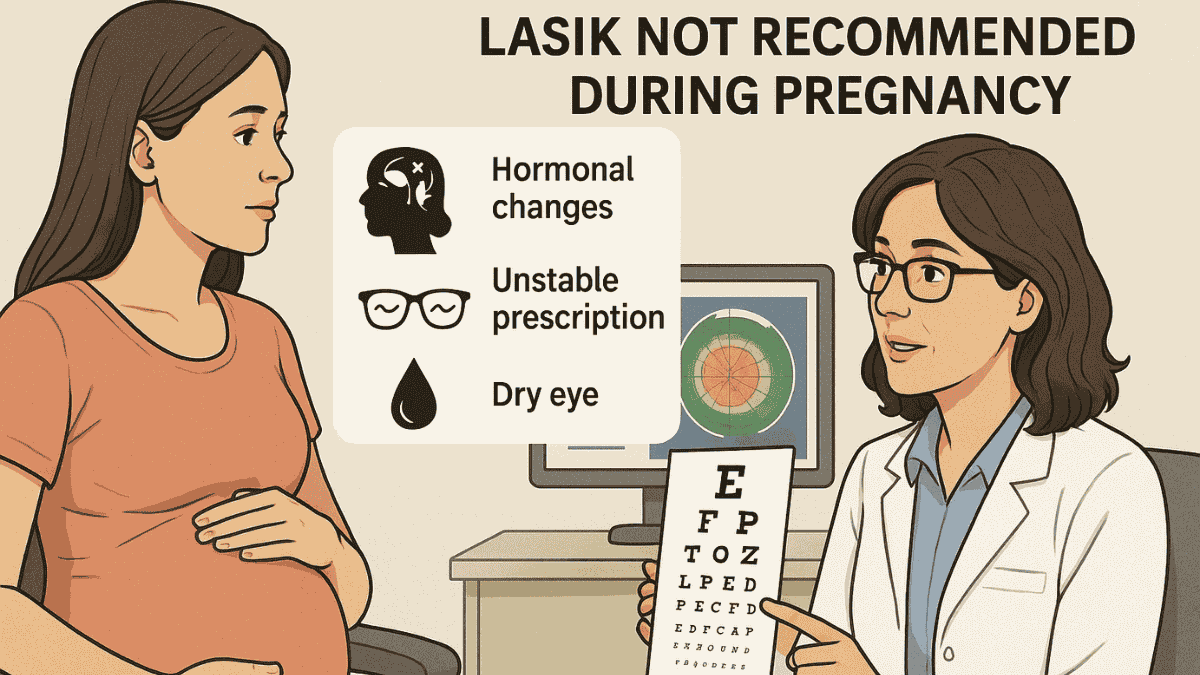
2. People with Certain Medical Conditions
Certain systemic health issues can compromise the healing process after eye surgery or increase the risk of complications. It is crucial to disclose your complete medical history to your eye surgeon. Some conditions that often preclude individuals from being a good candidate include:
- An autoimmune disease like rheumatoid arthritis, Sjogren’s syndrome, or lupus can impair the body’s healing response and may worsen dry eye, a common side effect of laser eye procedures. These conditions can sometimes also cause inflammation in the eye.
- Diabetes, particularly if it’s not well-managed, can lead to fluctuating vision and slower healing. Uncontrolled blood sugar levels can damage blood vessels in the eyes, potentially affecting the outcome of any vision correction procedure and increasing risks post-laser surgery.
- Conditions that weaken the immune system, such as HIV or AIDS, or the use of immunosuppressive medications, can increase the risk of infection and hinder the eye’s ability to heal properly after the correction procedure.
Your healthcare professional will carefully consider these factors. The primary goal is to ensure the laser vision treatment is safe and effective for you.

3. Those with Eye Diseases or Conditions
Existing eye conditions can make laser eye surgery risky or reduce its effectiveness. A thorough examination by an eye specialist is necessary to identify any underlying issues. People who should generally not have refractive laser surgery include those with:
- Keratoconus: This condition involves a progressive thinning and bulging of the cornea, the very tissue the laser treatment reshapes. Performing laser surgery on a keratoconic eye could worsen the condition and lead to further vision loss.
- Glaucoma: While some individuals with very mild, stable glaucoma might be considered, the procedure involves temporary increases in eye pressure during certain types of laser eye surgery (like creating a LASIK flap). Post-surgery inflammation or steroid eye drops can also affect eye pressure, complicating glaucoma management.
- Cataracts: If vision problems are caused by cataracts (clouding of the eye’s natural lens), then cataract surgery is the appropriate vision correction solution. This surgery cataract procedure involves lens replacement with an intraocular lens and can often correct refractive errors at the same time. Laser eye surgery addresses the cornea, not the lens affected by cataracts.
- Severe dry eye syndrome: Laser eye surgery can often temporarily worsen dry eyes. If you already suffer from significant dry eye, the surgery might exacerbate your symptoms to an uncomfortable or even damaging degree. Thorough pre-operative assessment and treatment for dry eyes are critical, and sometimes, alternative treatment options are better.
- Large pupils: Individuals with naturally large pupils, especially in dim light, may have a higher risk of experiencing night vision disturbances such as glare, halos, or starbursts around lights after laser vision correction. This can affect activities like driving at night.
- Corneal scars: Significant scars on the cornea can interfere with the laser surgery work and affect the predictability of the outcome. The location and depth of the scar are important factors.
These eye conditions can impact not only the safety of the laser eye procedure but also the quality of your vision correction results.
Related Article
Managing Dry Eye Syndrome Before LASIK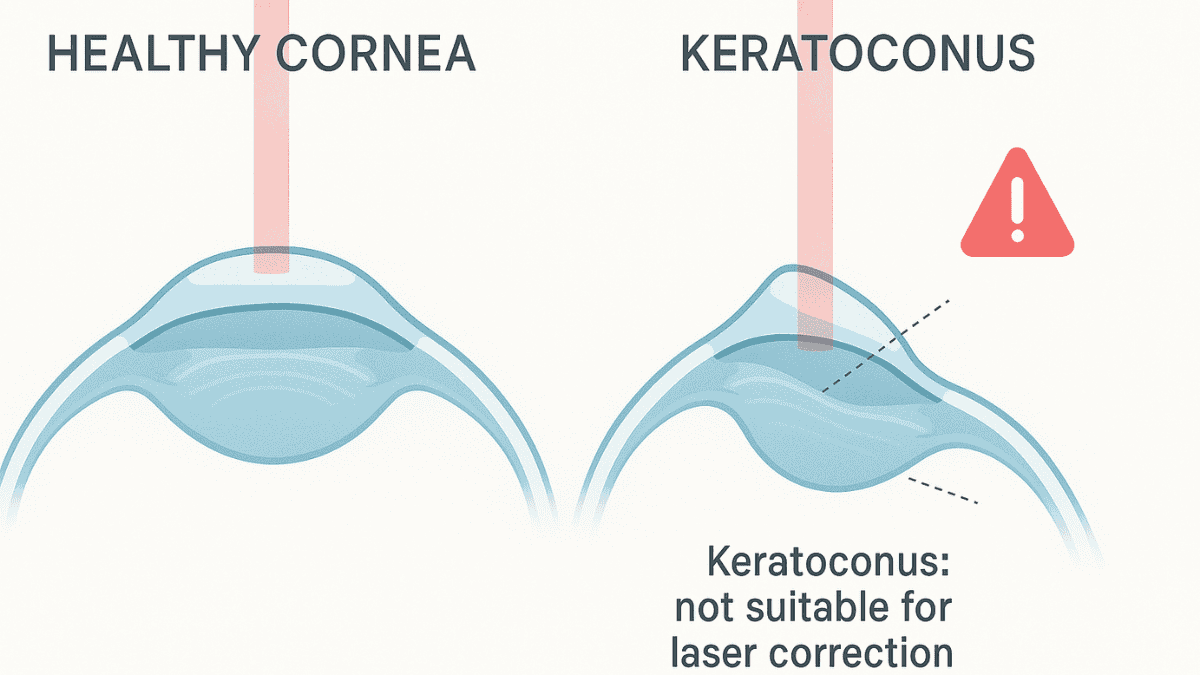
4. Individuals with Unstable Vision
If your eye prescription for glasses or contact lenses has been changing frequently, you are generally not a good candidate for laser eye surgery. The refractive laser reshapes your cornea to correct your current refractive error. If your vision is still changing, the benefits of the correction procedure may be short-lived, and you might find yourself needing glasses again sooner than expected.
Surgeons typically require your eye prescription to be stable for at least one year, sometimes longer, before considering laser treatment. This ensures the vision correction performed is accurate and lasting. This is particularly relevant for younger adults whose eyes may still be undergoing changes.
5. People Under 18
Most eye surgeon professionals will not perform laser eye surgery on individuals under the age of 18, and many prefer patients to be in their early to mid-twenties. The primary reason is that eyes continue to develop and change throughout adolescence and even into early adulthood. Undergoing a laser vision correction procedure before the eyes have fully stabilized can lead to an inaccurate correction as the refractive error might continue to shift.
Waiting until vision has stabilized, typically demonstrated by a consistent eye prescription for at least a year, is crucial for achieving a long-term successful outcome from any refractive laser surgery.
6. Those with Very High Prescriptions
While laser eye surgery can correct a wide range of refractive errors, there are limits. If you have a very high degree of nearsightedness (myopia), farsightedness (hyperopia), or astigmatism, laser treatment might not be able to fully correct your vision or may involve removing too much corneal tissue, increasing risks. Each type of laser surgery, like lasik eye surgery or PRK surgery, has specific parameters for the degree of refractive error it can safely and effectively treat.
Attempting to correct very high prescriptions with corneal laser surgery can lead to unsatisfactory visual outcomes, increased risk of side effects like glare and halos, or even compromise corneal integrity. For individuals with high vision problems who desire to stop wearing glasses, alternative treatment options such as an implantable contact lens (ICL) or refractive lens exchange (RLE) might be recommended by their eye specialist as a more suitable vision correction solution.
7. People Taking Certain Medications
Some medications can interfere with the healing process after eye surgery or increase the risk of side effects such as dry eye. It’s vital to inform your ophthalmic surgeon about all medications you are currently taking, including prescription drugs, over-the-counter medicines, and supplements. Medications that can be problematic include:
- Isotretinoin (e.g., Accutane), used for severe acne, is known to cause significant dry eyes and can impair corneal healing. Surgeons usually require patients to be off this medication for several months before considering laser eye procedures.
- Amiodarone, a heart medication, can cause deposits on the cornea that might interfere with laser vision.
- Oral corticosteroids (e.g., prednisone) can affect healing and potentially increase intraocular pressure. Their use needs careful consideration.
- Some immunosuppressants can increase the risk of infection and delay healing after the correction procedure.
Your healthcare professional will assess whether any medications you take pose a risk to the safety or success of your laser eye surgery.
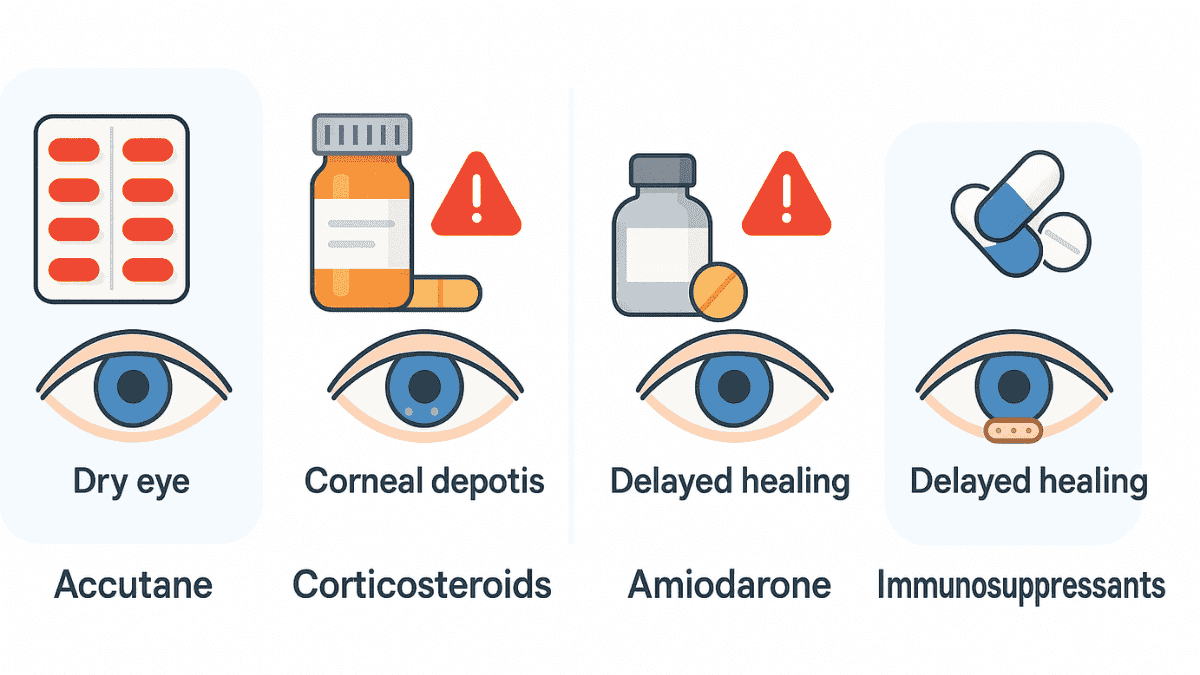
8. Those with Thin Corneas
The procedure involves reshaping the cornea. Procedures like lasik surgery (or surgery lasik) require the creation of a corneal flap. If your corneal thickness (often referred to as thickness cornea) is insufficient, creating this flap or performing the subsequent laser ablation could leave the cornea too thin, potentially leading to serious complications like corneal ectasia (a bulging of the cornea).
Even for PRK surgery, which does not involve a flap, adequate corneal thickness is necessary for a safe and effective laser treatment. Your eye surgeon will measure your corneal thickness accurately during your pre-operative assessment to determine if you are a good candidate for any type of refractive laser surgery.
Related Article
LASIK and Thin Corneas: What You Should Know9. People with Large Pupils
Pupil size, especially in low-light conditions, is an important consideration for laser eye surgery. If your pupils dilate to a size larger than the optical zone treated by the laser, you may be at an increased risk of experiencing night vision disturbances after the laser vision correction. These disturbances can include glare, halos around lights, and starbursts, which can make activities like night driving difficult.
While modern laser technology often incorporates larger treatment zones, individuals with exceptionally large pupils might still be more prone to these side effects. Your eye specialist will measure your pupil size in different lighting conditions as part of your comprehensive evaluation.
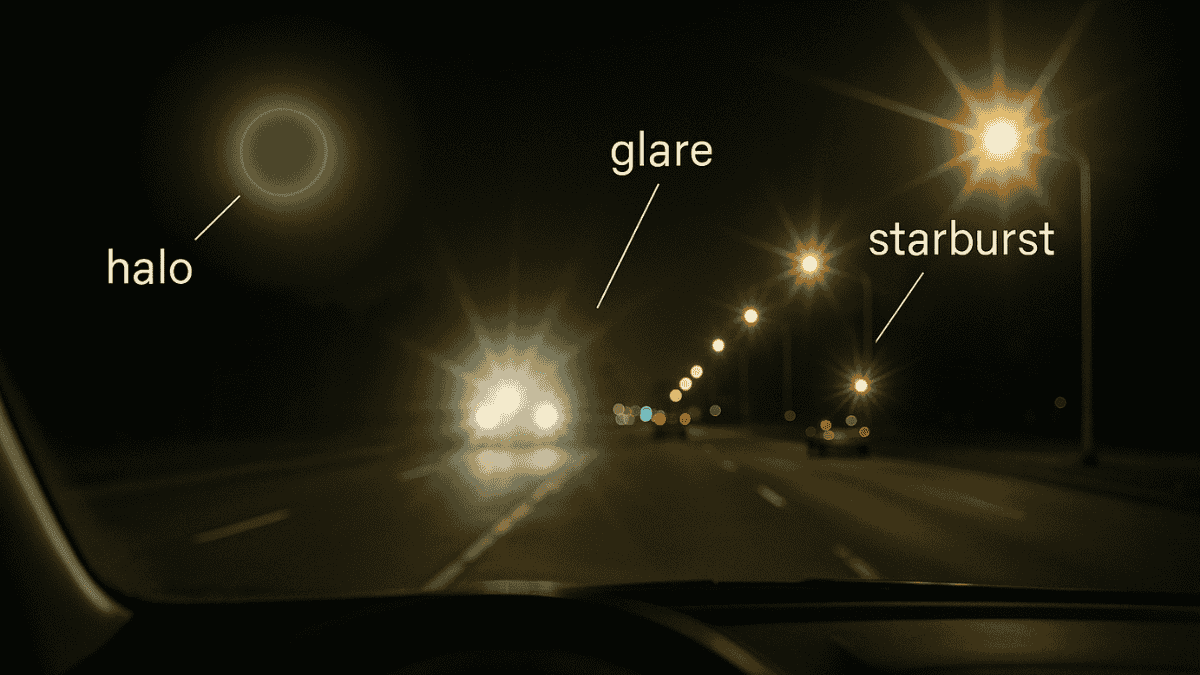
Related Article
Night Vision and LASIK: What to Expect10. Individuals with Unrealistic Expectations
While laser eye surgery can dramatically improve focus and significantly reduce or eliminate the need for wearing glasses or contact lenses for distance vision, it’s important to have realistic expectations. Achieving perfect vision (e.g., 20/20 or better without any visual imperfections) is not guaranteed for everyone. Some patients may still need glasses for certain activities, like driving at night, or may require reading glasses as they age due to presbyopia (age-related vision changes affecting reading vision).
It’s important to discuss your visual goals and expectations thoroughly with your eye surgeon. Understanding what laser surgery can and cannot achieve, and being aware of potential side effects, is key to satisfaction with the outcome. Reading patient stories can be helpful, but remember that individual results vary.
What Happens If You’re Not a Good Candidate?
If your eye doctor or ophthalmic surgeon determines that you are not a good candidate for laser eye surgery, it doesn’t mean you have to continue struggling with your vision problems or relying solely on glasses and standard contact lenses. There are several advanced alternative treatment options available. Your eye specialist can discuss these alternatives, which might include:
- Implantable contact lenses (ICLs): An implantable contact lens is a micro-thin lens that is surgically placed inside the eye, typically between the iris and the natural lens. These implantable contact lenses, such as the EVO Visian ICL, can correct a wide range of refractive errors, including high levels of nearsightedness and astigmatism. They are a particularly good vision correction solution for patients with thin corneas or severe dry eye who are not suitable for laser vision. The procedure is often reversible as the implantable contact can be removed if necessary.
- Refractive Lens Exchange (RLE): Also known as lens replacement surgery or clear lens surgery, RLE is a procedure involves removing the eye’s natural lens and replacing it with an artificial intraocular lens (IOL). This is similar to cataract surgery but performed on eyes without significant cataracts to correct refractive error. RLE is often a good treatment option for older individuals (typically over 40 or 50) with high hyperopia, presbyopia, or early lens changes. Advanced technology intraocular lenses can correct distance vision, reading vision, and astigmatism.
- Advanced contact lenses: For some eye conditions like keratoconus or severe dry eyes that make other surgeries unsuitable, specialized contact lenses can provide excellent vision correction. These include scleral lenses, rigid gas permeable (RGP) lenses, or hybrid lenses.
- Updated prescription glasses: While it may not be the correction solution you were initially hoping for, modern eyeglasses offer a wide array of stylish and effective options for correcting refractive errors.
Here’s a brief comparison of some popular alternatives:
| Feature | Laser Eye Surgery (LASIK/PRK) | Implantable Contact Lens (ICL) | Refractive Lens Exchange (RLE) |
|---|---|---|---|
| Primary Correction Method | Reshapes cornea using refractive laser | Adds a corrective implantable contact lens inside the eye | Replaces the natural lens with an intraocular lens |
| Ideal Candidate Age | Typically 20s-40s | Typically 21-45 years | Often 45/50+ (can address presbyopia & high refractive errors) |
| Reversibility | No (corneal tissue is permanently altered) | Yes (the implantable contact lens can be removed or replaced) | No (the natural lens is permanently removed) |
| Presbyopia Correction | Limited (Monovision is an option for some) | Typically does not correct presbyopia | Yes (with multifocal or extended-depth-of-focus intraocular lenses) |
| Impact on Natural Lens | None | None, sits in front of the natural lens | The natural lens is removed and replaced by an intraocular lens |
| Suitability for Dry Eyes | Caution, may worsen existing dry eye | Generally a better option than laser eye for dry eyes | Can vary; post-op dry eye is possible |
| Suitability for Thin Corneas | Limited (PRK surgery may be an option over lasik surgery) | Often a very good treatment option | Corneal thickness cornea is not a primary factor |
| Correction of High Refractive Error | Limited by corneal thickness and safety | Excellent for high myopia and astigmatism | Excellent for high hyperopia, myopia, and astigmatism |
Your eye surgeon will help you explore these treatment options to find the best path for your vision correction needs if standard laser eye surgery is not recommended.
The Importance of a Thorough Eye Exam
Before any laser eye surgery or alternative vision correction procedure is considered, a comprehensive eye examination is absolutely essential. This exam, conducted by a qualified ophthalmic surgeon or eye specialist, is designed to assess your overall eye health and determine if you are a good candidate. It typically includes a range of tests such as:
- Measuring your pupil size in various lighting conditions.
- Checking your corneal thickness meticulously using specialized instruments.
- Mapping the shape and contours of your cornea (corneal topography) to detect irregularities like keratoconus.
- Assessing for dry eye syndrome, including tear quality and quantity.
- Dilating your pupils to allow the eye surgeon to examine the health of your retina, optic nerve, and natural lens.
- Precisely measuring your refractive error to establish a stable eye prescription.
This thorough evaluation helps ensure the safety and effectiveness of the proposed laser treatment or other correction solution. It also helps the healthcare professional identify any underlying eye conditions that might make you an unsuitable candidate for a specific procedure involves changing the eye’s focus.
What If You’ve Had Previous Eye Surgery?
If you have undergone other eye surgery procedures in the past, this can influence your eligibility for laser eye surgery. Previous corneal surgeries, such as an earlier refractive laser procedure (like lasik eye or PRK), cataract surgery, or corneal transplants, can alter the structure and integrity of your cornea. Each case is unique, and your eye surgeon will need to evaluate your specific history.
In some instances, enhancement laser surgery may be possible after a previous laser vision correction, but this depends on factors like remaining corneal thickness, corneal stability, and the quality of your current vision. If you have had cataract surgery cataract and received a monofocal intraocular lens, laser eye surgery might sometimes be used as a fine-tuning correction procedure to address residual refractive error, though this is less common and depends on individual circumstances. Any prior surgery work on the eye necessitates a very careful assessment.
The Role of Age in Laser Eye Surgery
While there isn’t a strict upper age limit for undergoing laser eye surgery, age is a significant factor in determining suitability and which vision correction solution might be best. As mentioned, individuals under 18 (and often into their early twenties) are generally not candidates due to ongoing changes in their eye prescription. For older adults, other considerations related to age-related vision changes come into play.
Around the age of 40, most people begin to experience presbyopia, which is the natural loss of reading vision and ability to improve focus on near objects. Standard laser eye surgery primarily corrects distance vision by reshaping the cornea. Therefore, even after successful laser surgery for nearsightedness or farsightedness, individuals with presbyopia will likely still need reading glasses for close-up tasks. Some laser eye techniques, like monovision (correcting one eye for distance and the other for near), can address presbyopia, but it’s not suitable for everyone.
For older adults, particularly those developing early cataracts or significant presbyopia, refractive lens exchange (RLE) might be a more appropriate lens surgery. This lens replacement procedure can correct refractive errors and, with advanced multifocal or extended-depth-of-focus intraocular lenses, can also address the need for reading glasses. The American Academy of Ophthalmology provides resources on various treatment options for different age groups and vision problems.
Understanding the Risks
Even if you are deemed a good candidate for laser eye surgery, it’s crucial to understand that, like any surgical procedure involves medical intervention, it carries potential risks and side effects. While laser vision correction is generally safe and commonly performed with a high success rate, complications can occur. Your eye surgeon should discuss these potential issues with you in detail, including:
- Dry eyes: This is a common side effect, often temporary, but it can sometimes become chronic or worsen pre-existing dry eye conditions. Lubricating eye drops are typically used to manage this.
- Glare, halos, or starbursts around lights: These visual disturbances are more common at night and can affect night driving. They often improve over time but can be persistent in some cases.
- Under-correction or over-correction: The laser treatment may not fully correct your refractive error, or it might correct it too much. This could necessitate further laser surgery (an enhancement) or the continued use of glasses or contact lenses for some activities.
- Infection or inflammation: Though rare with modern techniques and antibiotic eye drops, these are potential risks with any eye surgery.
- Flap complications (specific to lasik eye surgery): Issues with the corneal flap created during lasik surgery lasik are uncommon but can include displacement or inflammation.
- Corneal ectasia: A very rare but serious complication involving weakening and bulging of the cornea, potentially leading to significant vision loss. This risk is higher in individuals with undiagnosed keratoconus or insufficient corneal thickness.
- Vision loss: Extremely rare, but no surgery is entirely without the risk of a decrease in vision.
A responsible healthcare professional will ensure you understand these potential risks before you consent to undergo laser eye treatment.
Related Article
LASIK Surgery Risks ExplainedThe Importance of Follow-Up Care
If you decide to undergo laser eye surgery, consistent follow-up care with your eye surgeon is essential for a successful outcome and a good treatment experience. These post-operative appointments are crucial for monitoring your healing progress, managing any side effects like dry eye, and ensuring your vision is stabilizing as expected. Skipping these appointments can put your eye health and the results of your surgery work at risk.
Follow-up care typically involves a schedule of visits starting the day after the correction procedure and continuing for several weeks and months. During these visits, your eye specialist will check your vision, examine your eyes, and prescribe or adjust medications like eye drops as needed. Adhering to the post-operative instructions, including using medications as directed and observing any activity restrictions, plays a vital role in achieving the best possible vision correction from your laser surgery.
Conclusion
Understanding who should not have laser eye surgery is a fundamental part of making an informed decision about your vision correction journey. While refractive laser surgery has empowered millions to reduce their dependence on wearing glasses or contact lenses, it is not a universal correction solution. Factors such as pregnancy, certain medical conditions, existing eye conditions, unstable eye prescription, insufficient corneal thickness, or unrealistic expectations can make someone an unsuitable candidate.
If you are considering laser eye treatment to address your vision problems and improve focus, the most important step is to schedule a comprehensive eye examination with a qualified ophthalmic surgeon or eye specialist. They can thoroughly assess your individual circumstances, discuss all available treatment options, including alternatives like implantable contact lenses or refractive lens exchange, and help you determine the best path forward. Your eye health is invaluable, and taking the time to make the right decision for your specific needs is a worthwhile investment for clear and comfortable vision.
No, due to hormonal changes that affect vision and tear production, most surgeons advise waiting until several months after pregnancy and breastfeeding.

Autoimmune diseases like lupus or rheumatoid arthritis can impair healing and worsen dry eye, making LASIK less safe or effective.

Because keratoconus causes a weak, cone-shaped cornea, laser reshaping can worsen the condition, leading to further vision loss or instability.

Not usually. Pressure fluctuations during surgery and steroid use afterward can worsen glaucoma or interfere with its treatment.

Yes. If your vision issues stem from cataracts, the appropriate treatment is lens replacement, not corneal reshaping via LASIK.

If your prescription changes frequently, laser correction may not last long. A stable prescription is key to long-term success.

No. The eyes are still developing into early adulthood. Most surgeons require candidates to be at least 18 with a stable prescription.

High levels of myopia, hyperopia, or astigmatism may exceed safe treatment limits. Alternatives like ICL or RLE might be recommended.

Medications like Accutane, corticosteroids, or immunosuppressants can impair healing or increase side effects. Inform your doctor.

Options like implantable contact lenses (ICL), refractive lens exchange (RLE), or specialty contact lenses may suit your condition better.



